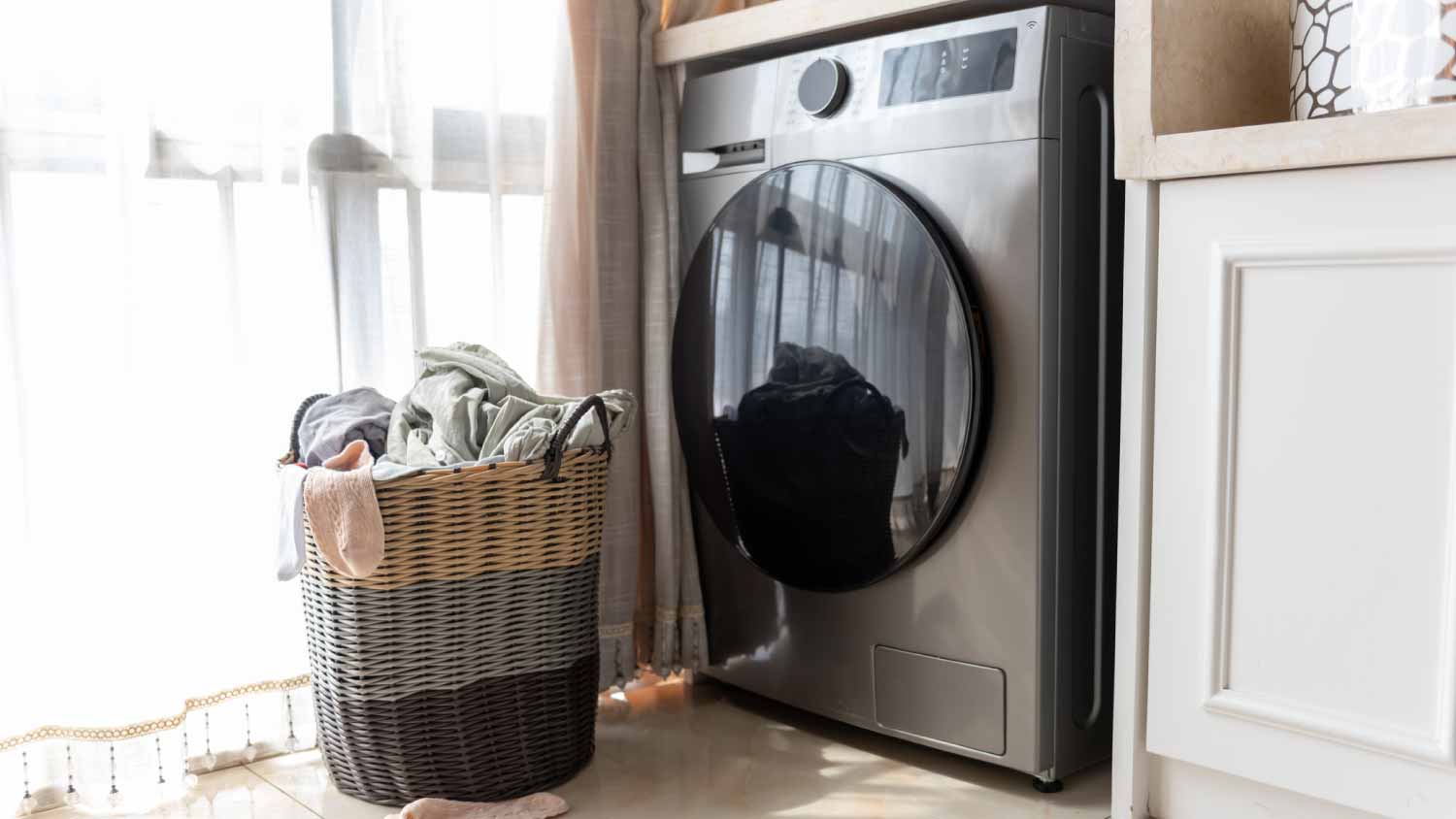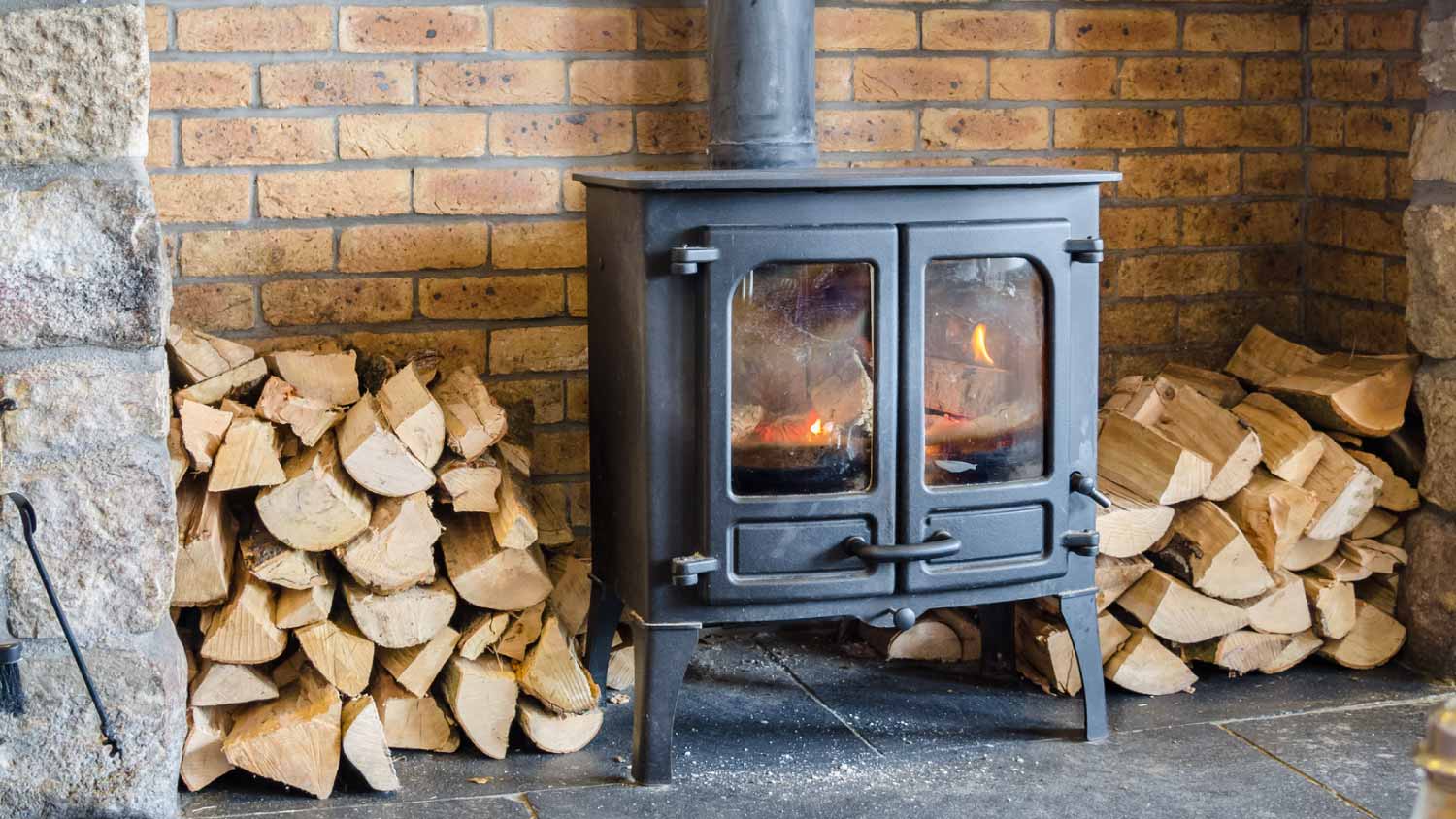11 Signs Your Refrigerator is Dying and Potential Solutions
Discover the subtle cues and unmistakable warnings that your refrigerator might be on its last legs


Indicators such as a higher-than-usual electric bill and unusual sounds are some signs that your fridge may be nearing the end of its life span.
A valid warranty can cover repair costs and serve as a temporary solution to a dying fridge.
Ignoring the warning signs could mean you need to replace your fridge entirely.
The refrigerator plays a critical role in our lives, and it's hard to imagine a time when we didn't have this essential kitchen appliance. Refrigerators provide us with convenience by allowing us to store food for longer periods, saving us time, money, and energy.
When a refrigerator is dying or not functioning correctly, it can lead to food spoilage and higher energy bills. So, how can you interpret the signs that your refrigerator is dying and needs repairs or replacement? In this article, we will discuss the signs of a deteriorating refrigerator so that you can recognize when it's time to invest in a new one or just repair it.
Refrigerator repairs can be complicated and hazardous to one's health. If you don't have prior experience with this project, contact a local pro to ensure the job is completed safely.
1. Rapid Food Spoilage
Problem: If your food consistently spoils before its expiration date, it's an indicator that your refrigerator is not maintaining the required temperature. Fluctuating temperatures lead to faster spoilage. Ideally, the fridge should be set at around 37°F (3°C).
Solution: If your fridge is not cooling, it could indicate its impending failure. It is important to get it looked at by a technician immediately before the refrigerator completely stops functioning.
2. Your Refrigerator is Too Cold

Problem: This can be caused by a defrosting sensor or a cracked door seal, which allows warm air to enter and forces the refrigerator to work harder to maintain its temperature. Aside from the risk of food spoilage, this also leads to increased power consumption.
Solution: Start by testing your thermostat—set it one notch above its current setting and see if it recalibrates and adjusts the overall temperature inside your fridge. If this doesn’t work, the culprit could be frost buildup. Old refrigerators are especially susceptible to frost buildup, which can cause malfunctions. If this is the case with your refrigerator, it's best to contact a nearby fridge technician for repairs.
3. Ice Build Up in Freezer
Problem: If you've noticed a significant amount of ice building up in your freezer, it's not just an inconvenience—it's one of the signs that your refrigerator is dying. While some frost accumulation is normal, a thick layer of ice can indicate that the defrost system in your fridge isn't working properly.
This can result in reduced cooling efficiency because the excess ice hampers the freezer's ability to maintain temperatures. It not only affects the quality of foods but also puts extra strain on your refrigerator's compressor, potentially speeding up its deterioration. The cost to replace a fridge compressor averages around $400.
Solution: So if you find yourself frequently chipping away at a mountain of ice, it may be time to consider the health of your refrigerator and get a professional diagnosis. In the interim, try defrosting your freezer by following these steps:
Remove all the food in the freezer and fridge and move it to a cooler.
Place towels down in the bottom of your freezer.
Unplug your fridge—this puts the fridge into defrost mode.
Allow the ice to thaw naturally. Note that this could take several hours, so if there’s ice cream in your cooler, it might be a good idea to enjoy a mid-day sweet treat.
Once the ice has melted, clean and dry the freezer.
Plug your fridge in and put all your food back.
4. Excessive Condensation
Problem: A little condensation inside your refrigerator is normal, but when moisture starts accumulating excessively, it's time to investigate. Waking up to a whole lot of dampness inside your fridge might be due to a faulty door gasket, inadequate insulation, or even an overworked cooling system.
Excessive moisture not only affects the freshness of your food but can also lead to the growth of mold and mildew. Addressing the root cause of this moisture buildup is crucial, as it can put a strain on your fridge's components and decrease its overall efficiency.
Solution: If you're finding yourself reaching for a towel every time you open your refrigerator door, it's a sign that your appliance might be in need of some attention. First, clean out your fridge; this will help remove moisture and any food debris that is contributing to the condensation. Wipe down shelves, drawers, and walls with a clean damp cloth and dry everything thoroughly before replacing it in the fridge. You should also check the door seal and make sure it isn’t damaged in any way—if so, replace it.
Finally, if your fridge temperature is set too low, condensation can form. The optimal temperature for a fridge is between 35 and 38 degrees Fahrenheit. Anything lower can cause moisture to form on the refrigerator's interior surfaces. Adjust the refrigerator temperature to be within this range.
5. Water Leakage
Problem: Discovering pools of water around your refrigerator is an indication that something's wrong. A leaking fridge can be caused by issues such, as a defrost drain, damaged water supply lines, or a malfunctioning water filter.
Solution: Regardless of the source, neglecting a leaking fridge can lead to water damage, mold growth, and electrical hazards. Addressing this issue promptly not only prevents damage but also extends the life span of your appliance. Call a local refrigerator repair professional to have your fridge diagnosed ASAP.
While you’re waiting for the pro to arrive, you can turn off the water supply line if it is leaking to minimize water damage. Make sure to take your food out of the fridge and put it into a cooler while the water is turned off.
6. Interior or Exterior Cracks
Problem: Cracks, whether on the interior shelves or the exterior casing of your refrigerator, are more than just aesthetic annoyances. They are an obvious sign that your fridge is not quite what it was when you first got it. They can lead to compromised insulation, allowing cold air to escape and warm air to enter, putting extra strain on your fridge's compressor.
Exterior cracks can also lead to temperature inconsistencies and decreased energy efficiency. Interior cracks, on the other hand, can impact the storage of your food, making it susceptible to contamination and spoilage. Cracks might seem like minor blemishes, but they are signs your refrigerator is dying that you should never ignore.
Solution: Sometimes, cracks can be repaired, but this decision is best left to a professional. An expert should be able to determine whether the cracks are minor enough for repair or if it is time to replace the fridge.
7. The Back Of The Refrigerator Feels Too Warm
Problem: It's normal for the back of a refrigerator to feel warm because refrigerators release air from the back in order to keep it cool. However, excessive heat is not normal. This may indicate an issue. It’s possible that:
The fridge is too full
The evaporator coils or evaporator fan are malfunctioning
There’s something wrong with the electrical control board
Solution: Hopefully, the problem stems from a simple issue—check that the fridge’s power supply is switched on and that you haven’t accidentally turned the thermostat down.
Next, if your fridge is overstuffed, try removing some items to allow air to circulate more freely. Check the areas around the vents in the freezer and remove anything that could be blocking cold airflow. Check the temperature in a couple of hours to see if the fridge has cooled down.
If these solutions don’t work, you can check the fan and coils. Turn the power supply off and pull the fridge away from the wall so you can inspect the fans and coils. Clean the blades and coils of dirt and debris, plug the fridge back in, and see if the fans run as they should and the fridge cools down. If not, a professional will need to replace these components.
Depending on the age of your refrigerator, it might be practical and cost-effective in the long run to consider getting a new one rather than replacing multiple parts. Replacing motor coils may lead to parts needing repairs or replacements in time. Many times, installation is included with the purchase of a new fridge from an appliance store.
8. Your Refrigerator Is Too Noisy
Problem: Refrigerators typically emit a humming sound while running. If your unit consistently produces noise, it suggests that the motor is under stress.
If the noise doesn't go down, it indicates that there might be a problem with your refrigerator. The constant humming sound means that the fridge is working hard to maintain a temperature or remove excess heat. It's important to address this issue because it not only shortens the life span of your appliance but also leads to higher energy bills.
Solution: Try to identify where the sound is coming from. If your fridge is rattling from the bottom, the issue could be a loose drain pan. Secure the drain pan back into place and see if the noise goes away.
Sound from the back of the unit could indicate a problem with the defrost timer, condenser fan, or compressor. These parts are best replaced or repaired with the help of a professional.
9. Your Refrigerator Doesn’t Make Any Noise
Problem: A silent refrigerator isn't good news either. As we've mentioned, refrigerators should softly ‘hum’ while running. A case where your fridge isn’t making any noise whatsoever could indicate damage to the compressor or insufficient motor activity.
Solution: When a fridge is silent, it’s usually an indicator that the compressor or defrosting system is malfunctioning. Regardless of the cause, it's advisable to seek help from a technician as soon as possible.
10. You Have Noticed An Increase In Your Electric Bill
Problem: If you've noticed an increase in your electric bill, it could be due to your fridge struggling to maintain its temperature. While a slight rise in power consumption is normal during warmer months, like summer, a high increase could be a sign that your refrigerator is on its last legs.
Solution: It’s possible that the refrigerator seal is damaged. Place a dollar bill where the seal is and shut the fridge door; as you slowly pull the bill out, see if there is tension between the seat and the fridge’s frame. Repeat this around the entirety of the fridge door to check for any weak spots on the seal. If you notice worn areas, have the seal replaced as soon as possible. It’s also wise to have a professional repair technician perform a full inspection on your fridge to confirm there are no other problems that might cause a total breakdown of the appliance’s components.
11. Your Refrigerator is More Than 10 Years Old
Problem: Lastly, if your refrigerator has been in use for more than ten years, its age may be worth considering when evaluating any issues or potential repairs.
Refrigerators have a life span of around 10 to 20 years. However, it's worth considering whether they should last that long. If your refrigerator is over ten years old, it may be reaching the end of its life. It could be a good idea to start thinking about getting a new one.
Solution: If your refrigerator is experiencing any, or a combination of the issues mentioned above, then it might be time to have a professional look at it or replace it altogether.
Repairing or Replacing a Refrigerator: What's the Best Option?

Have you noticed any signs that your refrigerator is about to die? Are you uncertain whether you should repair it or buy a replacement?
Once you spot some of the signs that your fridge is starting to break down, there are factors worth considering when deciding between repairs and replacement.
These factors include the type and age of your refrigerator, the extent of damage, and its energy efficiency.
Refrigerator age: While the life span can depend on the type of refrigerator, most refrigerators tend to last 10 to 12 years. However, some newer models can endure for up to 20 years. Additional factors, like construction quality and proper refrigerator maintenance, can also influence how long a refrigerator lasts. If your refrigerator has been in use for over 10 years it may end up costing you a lot more to have it repaired than opting to purchase a new one.
Type of refrigerator: The type of refrigerator should be considered when deciding whether to repair or replace it. Certain types are more expensive to fix than others.
Energy efficiency: Energy Star reports that an older refrigerator (around a decade old) consumes 30-35% more energy compared to a new Energy Star-rated refrigerator. This not only leads to electric bills but also has negative implications for the environment.
Extent of damage: Although the extent of damage will differ in each case, it is always advisable to contact a technician specializing in refrigerator repairs for a diagnosis before considering purchasing a new one.
Repairing your refrigerator is cost-effective since fixing one component can extend its life span without requiring a large sum of money. It's also worth checking if your fridge is still under warranty before proceeding with repairs, as some repairs may be covered. However, if your fridge has old components or is older than ten years, it's probably best to replace it.
However, if you observe any signs mentioned above indicating that your refrigerator is nearing the end of its life, don't hesitate to get in touch with a refrigerator repair technician near you and schedule an appointment for refrigerator repairs!



.jpg?impolicy=leadImage)

- Appliance Repair Companies
- Washing Machine Repair
- Dryer Repair
- Refrigerator Repair
- Dishwasher Repair
- Oven Repair
- Wood & Pellet Stove Repair
- Freezer Repair Services
- Wood Stove Services
- Gas Stove Repair
- Emergency Appliance Repair Companies
- Ice Maker Repair
- Gas Appliance Repair
- GE Appliance Repair
- GE Refrigerator Repair
- GE Dryer Repair
- GE Dishwasher Repair
- GE Washing Machine Repair
- Samsung Appliance Repair
- Samsung Refrigerator Repair
- Samsung Dryer Repair
- Samsung Washer Repair
- Samsung Dishwasher Repair
- Samsung Oven Repair
- Whirlpool Repair
- Whirlpool Refrigerator Repair
- Whirlpool Washer Repair
- Whirlpool Dryer Repair
- Whirlpool Oven Repair
- Maytag Appliance Repair
- Maytag Refrigerator Repair
- Maytag Washer Repair
- Maytag Dryer Repair
- Maytag Dishwasher Repair
- Kitchenaid Appliance Repair
- Kitchenaid Oven Repair
- Kitchenaid Refrigerator Repair
- Kenmore Appliance Repair
- Kenmore Dishwasher Repair
- Kenmore Washer Repair
- Kenmore Dryer Repair
- LG Refrigerator Repair
- Bosch Appliance Repair
- Kenmore Refrigerator Repair
- LG Appliance Repair Services
- GE Microwave Repair
- Electrolux Appliance Repair
- Electrolux Washer Repair
- Kitchenaid Dishwasher Repair Services
- Wood Stove Inspection
- Dishwasher Installation
- Trash Compactor Repair
- Top 12 Refrigerator Maintenance Tips
- 10 Ways to Make Your Refrigerator More Efficient
- Why Is My Fridge Leaking?
- Refrigerator Constantly Running: Reasons and Solutions
- Key Reasons Why Your Fridge Freezes Everything
- How to Properly Ship a Refrigerator When You Move
- Who Fixes Refrigerators? Who to Call to Fix Your Fridge
- Why Is My Side-by-Side Refrigerator Leaking Water Into the Freezer?
- Why is My Refrigerator Not Cooling? Key Reasons
- How to Dispose of a Refrigerator Properly
















